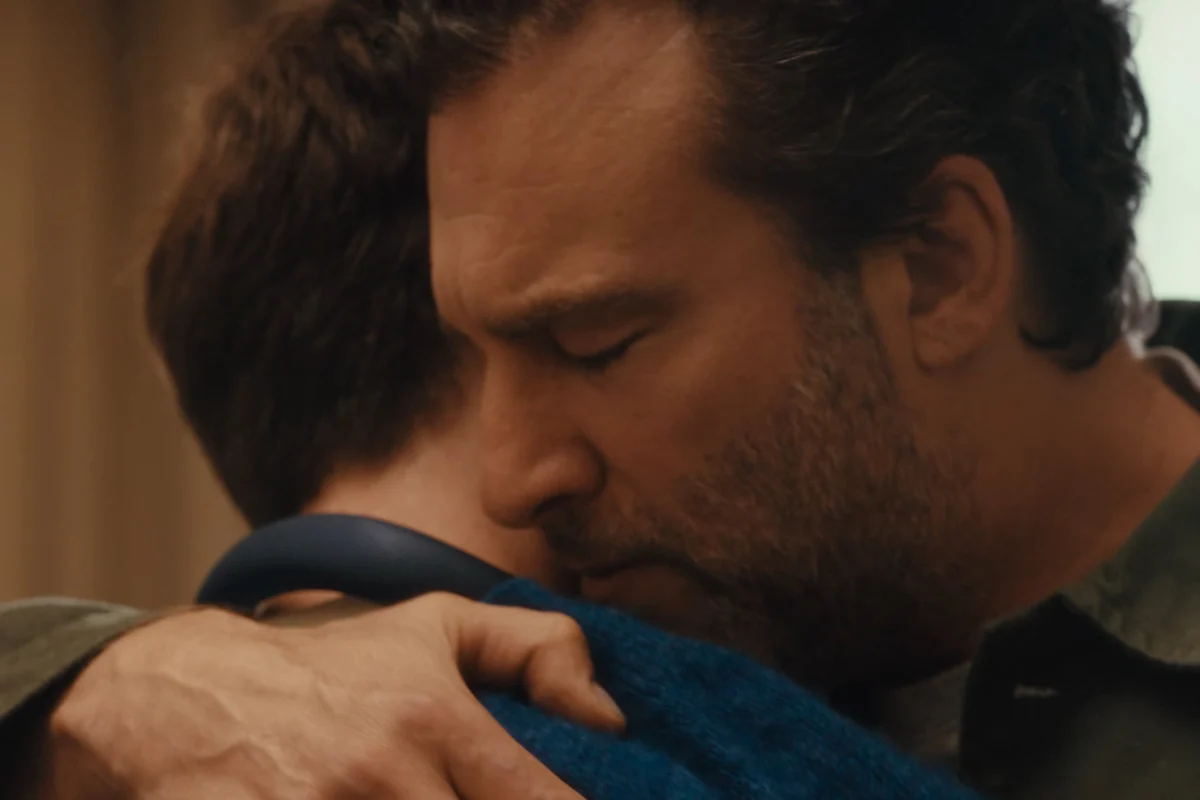Copyright standard

The new John Lewis ad is certainly a tear-jerker, and this time it wrings the tears out of viewers by taking on the ‘crisis in men’, seeking to portray isolating males even within the confines of a family. A teenage son leaves a present for his father under the tree, and leaves the room out of embarrassment when the old man starts to open it. It turns out to be a vinyl record of Where Love Lives, a 90s club classic which has great meaning for the father, who is immediately transported to a fantasy/flashback nightclub where he - cringe alert - becomes lost in music. But then he sees his teenage son across the nightclub. Dad beckons him over, and as he comes closer he changes into a little boy again, then a baby, all the years of hugs and kisses flooding back in the moment. Back in the real world, the teenage son enters the room and the father embraces him, weeping, the awkward masculine wall that has grown between them, shattered. Yes it makes you cry, and like most Christmas adverts, you do so while being annoyed at how you’ve fallen for the manipulation. One of the ways it plays upon you is by ripping off - or paying homage, if you prefer - to a Paul Mescal film which also delves into masculinity strictures but in far darker fashion. Aftersun is the name of it, an excellent indie film written and directed by Charlotte Wells which is loosely based on her own experiences with her dad. Told mostly in flashbacks, a grown woman called Sophie (Celia Rowson-Hall) reminisces about a holiday she spent with her father when she was 11 years old. We see through the eyes of her younger self, played by Frankie Corio, that her father Callum (Mescal) is separated from her mother, and clearly has a few mental health problems. This holiday is a lovely time spent with him but it is tinged with melancholy and tragedy, as clearly it is the final one with him. As the film repeatedly pops back into the present, Sophie has fantasy/dream sequences where she’s in a club and can see her father dancing. Not having a good time, but trapped in some sort of purgatory. Over the course of the film, she gradually moves towards him until there is some kind of resolution, as she ‘frees’ her dad. It’s all very heavy in Aftersun, but the John Lewis ad has taken some of the style (the strobing club, the extreme close-ups) and content (trying to get to your father/child in a liminal other world) to tap into its highly emotional territory but with sentiment as the subject matter, not trauma. A nicer end is apparent for the father and son in the ad than the father and daughter in the film, since despite Christmas being a terrible time for male mental health, John Lewis are not going to go there. Despite what advertisers and content agencies think, adverts are not art. The message at the end is ‘If you can’t find the words, find the gift.’ So there you go... shop your way out of trad masculinity.



